by Pauline Kael
Seen through the eyes of two angels who hover over the city blocks, Berlin is in tinted black-and-white. The image suggests metal, with a little of the lustre of old coins or tarnished silverware. And as the camera wafts in and out of airplanes, and into rooms high up in apartment buildings, and the angels observe the forlorn, dissociated lives of people who live in reverie, it’s as if black-and-white itself had petered out—as if the movie image was exhausted. What you see has a bluish-green softness, and it’s clear enough, but it feels at a remove; it’s a reminder of an image. Wings of Desire—the original title of this Franco-German production is Der Himmel über Berlin, which means the heaven, or sky, over Berlin—has the look of a dupe of a dupe. That look is telling you that movies are now ghosts of themselves.
The director, Wim Wenders, who wrote the script with the collaboration of Peter Handke, has a theme: in an approximation of Rilke’s words, “Joy has gone astray.” We’re told that “when the child was a child,” stories held together. Now all we have is fragmentation, entropy. And a sad-faced old man called Homer (Curt Bois) wanders through the ruins of the old metropolis trying to keep its story alive; his thoughts trigger flashbacks to Nazi atrocities.
The two angels—Damiel (Bruno Ganz) and Cassiel (Otto Sander)— roam through the bleak concrete buildings of the divided city; its ugliness is almost abstract. Wearing suits and overcoats, the two observers look like civil servants, except for their ponytails. They pick up scraps of stories as they move unseen among desolate individuals, listening to what’s in their minds—listening to the questions about existence that these people ask themselves. The angels have a poetic presence: they’re antennae for the thoughts of anonymous Berliners who can’t speak what they think. (There are no emotional outbursts; the people’s interior dialogues are detailed, measured, accurate—as if they could describe something only by its exact dimensions.) The angel Damiel’s face is infinitely compassionate, and the angel Cassiel knits his brow in worry; these two are in a muzzy state of empathy for everyone, everything. And they listen with the patience and concern of a seraphic, neutered uncle. Children can see them, and some grownups know when they’re around—those who are childlike at heart (moviegoers, perhaps, and Americans), those who aren’t split asunder, and still have the ability to feel things directly.
For about forty-five minutes, the mood of the opening shots is sustained. Our overhearing what the angels hear—the thoughts chanted on the track, all in even, quiet tones, as grayed out as the sunless skies—works on us like a tranquillizer. The dim whimsy, the recitations of prose poetry that recall the Beats—it all produces a blissed-out stupor that feels vaguely avant-garde. And this movie, which is dedicated to Ozu, Tarkovsky, and Truffaut, is full of charming (and almost charming) conceits, such as the angels’ attentiveness to the murmur of thought in the modern, fluorescent-lighted state library building. (It suggests Alphaville with lead weights on the camera.) This is where solitary people—who look as if they were forgotten by the world—come to read and to walk among the books. (These walkers recall the book memorizers in Fahrenheit 451.)
The film can hatch conceits in viewers. The angels can make you feel as if you’re walking around in the presence of an absent world, in the presence of people you’ve known. And when you see the angels listening to the people’s thoughts you may miss someone to whisper your feelings about the movie to. You have plenty of time for musing while looking at this after-the-apocalypse city, scarred by the Wall—the dividing line of two powers, and the symbol of the divided-souls.
Wings of Desire constantly articulates the impossibility of finding any meaning in anything. At the same time, it’s a love-story message movie. The angels, in their apartness and in their distress over the spiritual emptiness of the people, are like the cliché kind of intellectuals. Then Damiel, drooping from the sameness of his everlasting rounds and the ennui of seeing in monochromatic tones, eavesdrops on the thoughts of Marion (Solveig Dommartin), a beautiful, lonely French aerialist who’s dressed as an angel with feather wings, and performs in a tacky circus. (She recalls Merna Kennedy in Chaplin’s The Circus and Nastassja Kinski in Coppola’s One from the Heart.) She goes to a punk-rock club, and Damiel watches her there, dancing by herself, gyrating, her manner zombielike. When he sits among the children who are entranced by her trapeze work, this Chaplinesque girl awakens him to childish joy—of what it’s like to believe in the magic of trapeze artists. He feels the stirrings of desire, and he sees her in color. He begins to long for the ordinary pleasures—to hold an apple in his hand, to drink a cup of hot coffee. When he turns in his wings—so to speak—and plunges to earth, he has a new spring in his walk. The film breaks into full color, and he goes to find his aerialist.
He searches the city for her, and she searches, too, for she knows not whom, and they meet in the bar that adjoins the punk club. There, looking right at the camera, Marion speaks to Damiel for the first time, and it’s an oration. She goes on and on, declaiming—giving voice to her romantic, enigmatic thoughts in the affectless tone that he found so fetching when he listened to the workings of her mind. (It’s as if Merna Kennedy, at the end of the silent The Circus, started to speechify.) And she faces the audience and challenges us to take our voyages. Gott im Himmel!
A friend of mine says that he loved every second of this movie and he couldn’t wait to leave. To put it simply, Wings of Desire has a visual fascination but no animating force—that’s part of why it’s being acclaimed as art. The film’s lassitude—the way shots are held for small eternities, and the action seems to begin every three or four minutes—suggests some purpose beyond narrative, suggests that you’re experiencing the psychic craving of the Berliners as they drift through their chilly days, searching to be whole again. It’s a sluggish, weary-winged fable; it seems to be saying that if you’re a grownup living in postwar Germany a reminder of childish joy is the most you can hope for. The halfhearted coming together of Damiel and Marion is a fairy tale that we’re not quite meant to believe; the film’s tone of high German woe certainly indicates that. Even if Wenders wants to believe it, his moviemaking betrays him: the color sections are tawdry compared with the spooky spirituality of the black-and-white passages. The film’s meaning appears to be: We Germans recognize in ourselves a forever-to-be-unfulfilled wish for connectedness.
The only character with any pep is an American, played by Peter Falk, who is starring in a Nazi-period film that’s being shot on the site of an actual Second World War bunker. Falk—he’s called by his own name—enjoys the pleasures of simple sensory gratifications. With his big noggin and the gruff mischief in the way he plays along with the other characters, he’s solidly American. (And he’s a relief from Ganz’s poignancy; there’s so much of it that it gnaws at you.) Falk is the only free agent in the whole movie: when he takes a step, he really wants to go where he’s heading. Even when he soliloquizes like the Berliners, his thoughts are practical; they have a funky warmth. (In interviews, Wenders says that Falk wrote this material himself.)
My guess is that the Falk subplot is in the picture mainly because Wenders loves American movies and the people connected with them. But, if I read Wenders right, he’s also suggesting (as he has in the past) that movies are the American language, and that American movies (and rock) have colonized the Germans, causing another rift in their consciousness. He’s saying, “How lucky the Americans are—they didn’t suffer the way we did.” He knows he can’t make movies that race along, that are all narrative, studded with personalities. He’s got his Rilke and that scar of castration, the Wall. The whole movie is saying, “If only I could express myself like a child or an American moviemaker! Then I could unify the divided German soul, or, at least, my own soul.”
But, of course, Wenders doesn’t get into the spirit of popular art. When he uses a pop form, it’s lifeless—a simulation of ascetic high art. Marion is lovely, but on her last night with the circus, when she and one of the roustabouts at the outdoor farewell party sing together, Wenders seems to have just plopped them there. He names the circus for his celebrated cinematographer, Henri Alekan (and includes allusions to Cocteau’s 1946 Beauty and the Beast, which Alekan shot), yet from the sound of the laughter of the children who are supposed to be showing their joy at the circus they’ve got infant doses of Weltschmerz. The punk-club scenes are so rhythmless and desolate that they’re almost a parody of German anguish. And I have misgivings about Wenders’ including actual atrocity pictures; it’s as if he wanted to fortify his sense of defeat, his enervation. But then this is a movie with depressive angels—a notion worthy of Tarkovsky (for whom the whole universe was depressive).
Wenders films what makes him feel impotent. Yet he wants to inspire us: when Damiel and Marion embrace, Wenders wants to light a candle in our hearts, or, at least, half a candle. It’s this torchbearer Wenders who uses such corny devices as having the children be able to see the angels; he even has a little crippled girl who smiles at Damiel. Sentimentality and meaninglessness: postmodern kitsch. It’s enough to make moviegoers feel impotent.
The New Yorker, May 30, 1988

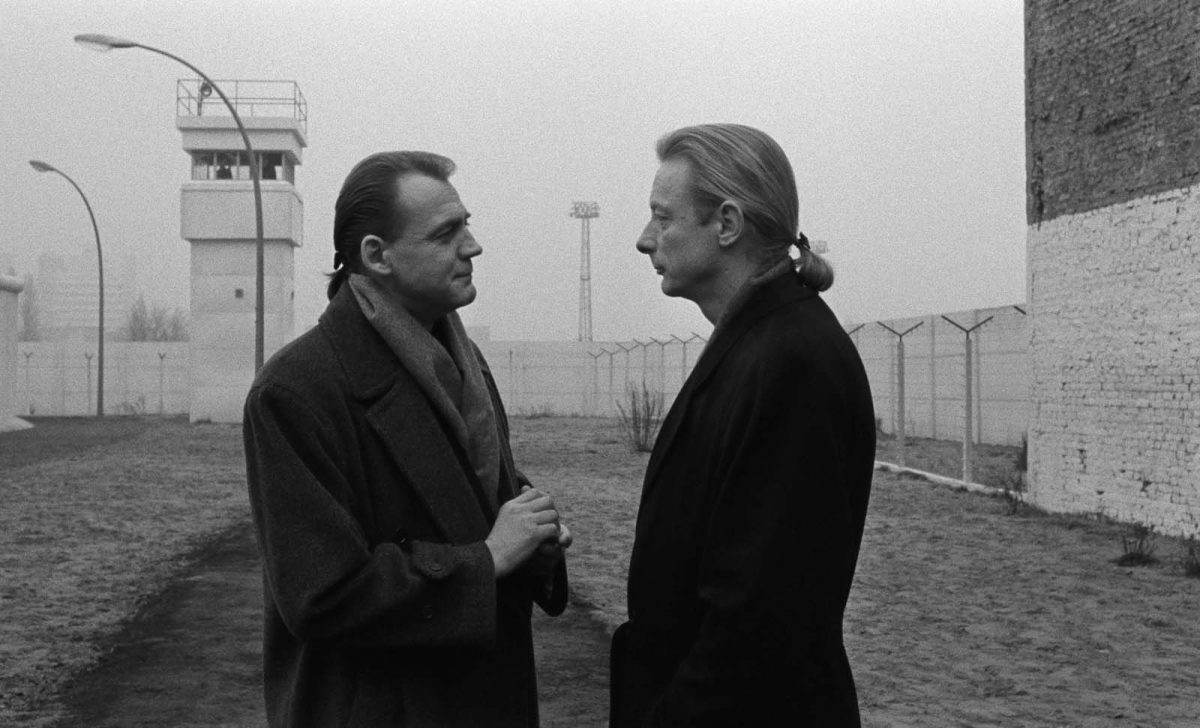
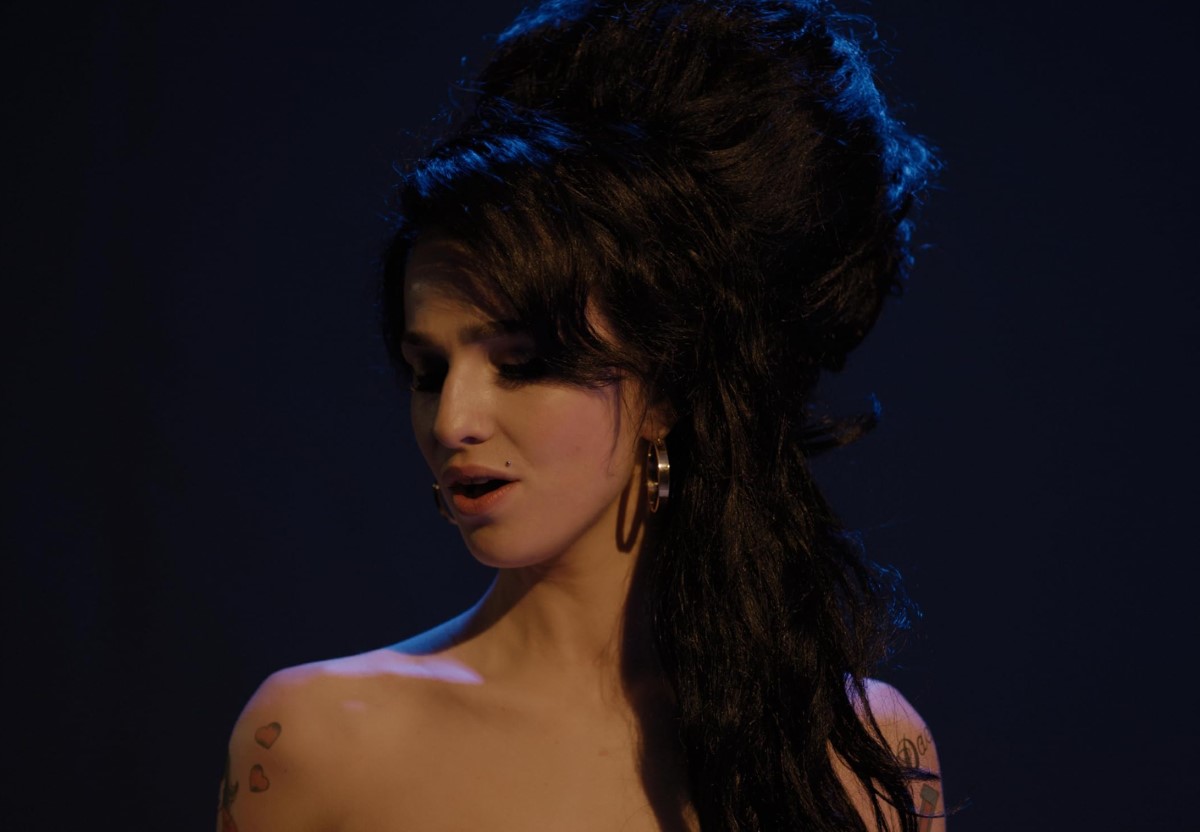
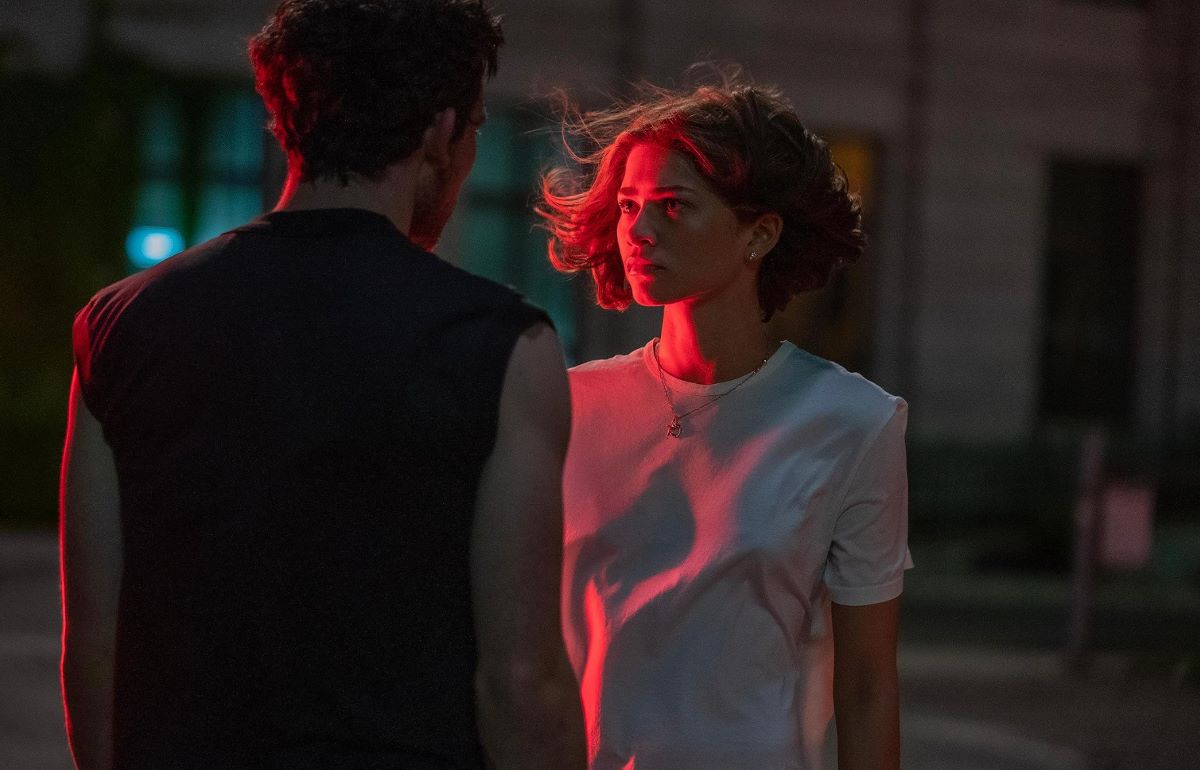
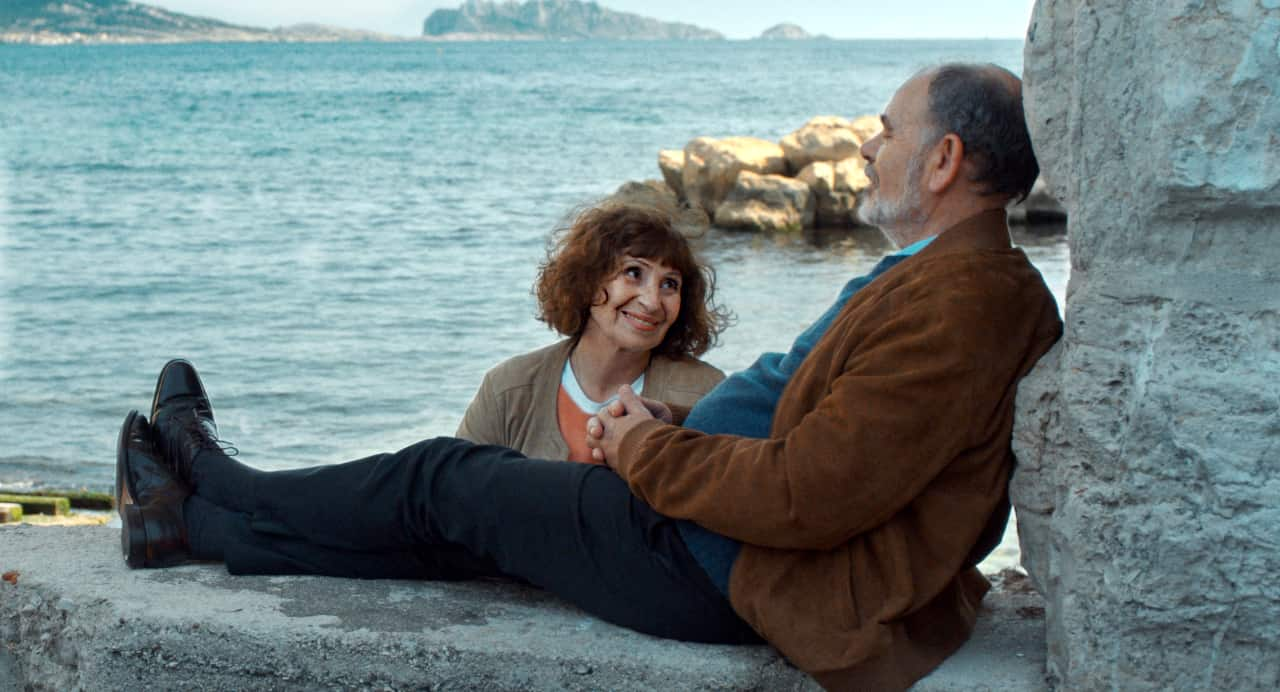
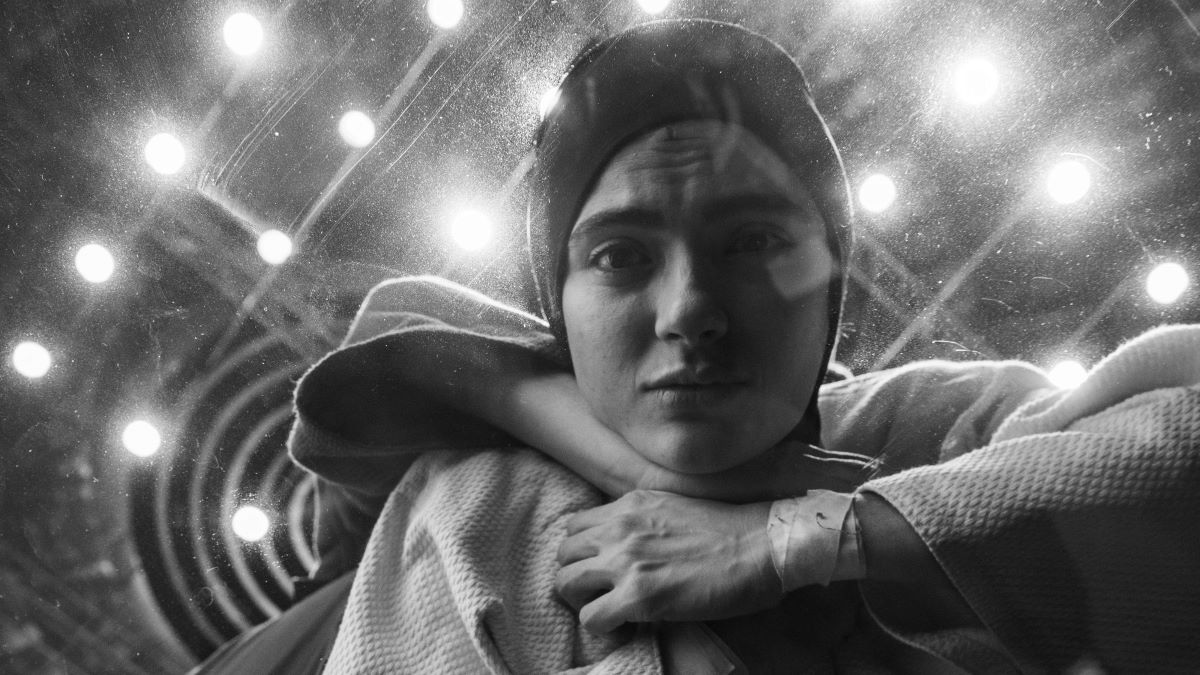
1 thought on “Wings of Desire (1987) | Review by Pauline Kael”
Thank you so so much for posting this review!